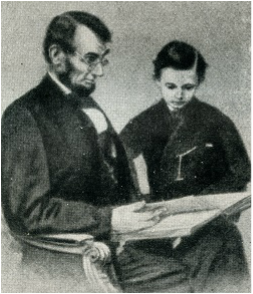 Picture two runners in a race. The first one is thinking, “I’m so tired. I’m not going to make it. My heel’s getting a blister. I should have gone to bed earlier last night. I should have drunk more water before the race. Everyone’s passing me. I’m not going to make it.” The second one is thinking, “Okay, not such a good idea to stay up late last night. I need to just pace myself, get to each fencepost. Feeling a little dehydrated. Well, nothing to be done about that now. Focus on the race. Catch up to that guy ahead of me. Plan better next time.
Picture two runners in a race. The first one is thinking, “I’m so tired. I’m not going to make it. My heel’s getting a blister. I should have gone to bed earlier last night. I should have drunk more water before the race. Everyone’s passing me. I’m not going to make it.” The second one is thinking, “Okay, not such a good idea to stay up late last night. I need to just pace myself, get to each fencepost. Feeling a little dehydrated. Well, nothing to be done about that now. Focus on the race. Catch up to that guy ahead of me. Plan better next time.
Kind of a simplistic illustration, I know. Maybe a better one could be drawn from the life of Abraham Lincoln, who is often depicted as someone subject to melancholy, introspection, and indeed depression. But a more balanced view of him shows that he was indeed subject to those states but was also aware of how to deal with them. I will quote from my own book Abraham Lincoln was known for this quality, and even though he is often characterized as being prone to depression, that description is apparently not all that accurate. He was able to identify his emotions and deal with them, as well as encourage those around him even in the darkest times of the Civil War. So he didn’t just ruminate on his moods; he paid attention to them so that he could manage them.
It’s that whole difference between being reactive and proactive. Lincoln knew he had a certain type of personality and he dealt with it. He also had a wonderful sense of humor and used that characteristic to good effect in all sorts of situations. Did you get a chance to see the splendid 2012 movie about him? We absolutely loved it. So, for myself, I’ve mentioned a number of times that I am a classic Obliger; that is, a personality type that responds readily to others’ expectations but not so well to my own. (Want to know more about these four tendencies that have been developed by the best-selling author Gretchen Rubin, whom I quote and refer to all the time? Take her four tendencies quiz and find out which one you are. I promise you that you will get a shot of helpful self-awareness from doing so.)
The great tool for Obligers to use in managing their tendency is accountability: join a group, commit yourself to doing something with a friend, sign up for a program online such as stikK, etc. The problem is, I don’t want to do any of those things. I have further refined my type to say that I’m an Independent Obliger, which is somewhat of a contradiction in terms. In other words, I like to work on my own, I don’t like having people check on me, and I have no desire to join a group, as I am allergic to meetings. (I do a ton of work for the Cherry Creek Chorale, for instance, but I resigned from the Board after less than a year because I couldn’t stand attending the meetings.) I have a terrible time meeting my own expectations, but I have a terrible time setting up accountability structures. What to do?
I have no final answer here, so this discussion will be ongoing. The one strategy that does work for me is to have a situation in which I have to produce material on some sort of schedule. I feel a great commitment to this blog because I do know I have readers, so I’m motivated to write regular posts. I’ve created an expectation in chorale members that I will write weekly posts about our music, and so I do that faithfully. I have an upcoming speaking engagement at our women’s retreat and so I’m gathering material for that. I wrote my book because I committed myself to teach a class on its subject. So the more I can create that sort of commitment the better off I’ll be.
I’m also a very strongly visual person, so I’ve been thinking a lot lately about that old chestnut, the rocks in the jar: putting the big rocks in first and then filling in the spaces with the gravel and sand. There are three big rocks for me to put in the jar on a typical weekday: my blogpost, my work on big writing projects, and my music practice. I keep making up a schedule and then failing to stick to it, but the jar image, plus the question “Are the rocks in the jar?” should help. I would welcome hearing back from readers about how you foster self-awareness and productivity!
Good example of how we misuse history–we say “Lincoln was often depressed” as if that meant something. Of course he was! A son died, the Civil War was killing hundreds of thousands… The really interesting thing is how he dealt with his sorrows.
Great analysis of the differences between self-awareness and self-absorption!